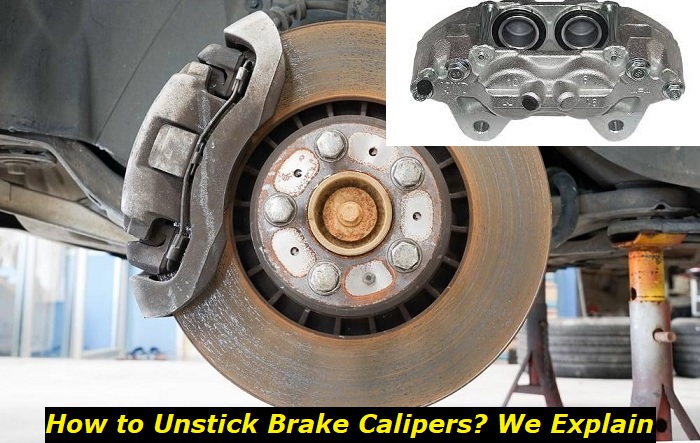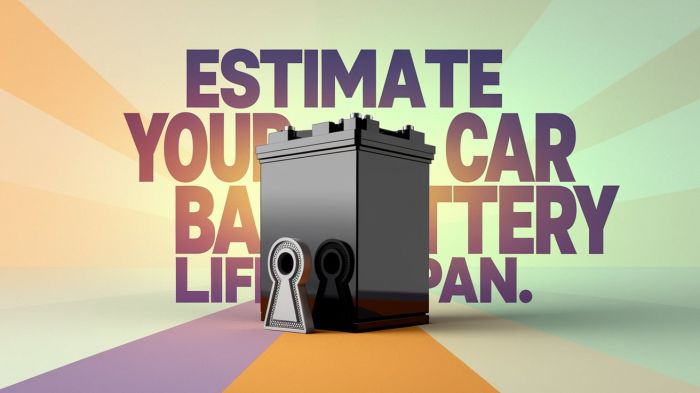Have you ever planned a road trip only to find you have sticking brakes on your material day? However, the worst-case scenario is when you notice this problem while en route to your destination.
Brake caliper problems highlights
- Level of urgency:super-urgent
- DIY diagnostics:impossible
- DIY repairs:impossible
- Price for repair:$300 - $600
- Common symptoms:noise when driving, bad braking, locked-up wheels
- Commonreasons:old caliper, physical damage
- If ignored:locked wheels, dangerous driving, accidents

Can You Fix a Sticking Brake Caliper without Removing It?
The best way to unstick a sticking brake caliper is by removing it first. However, this involves removing several other components, such as the guiding pins. Now, assuming you do not have a mechanical training background and put any of these components back the wrong way, you will have created an even bigger problem than the previous one.
For instance, if you put back the pins the wrong way, your vehicle will develop weird noises or cause you trouble stopping your car.
You must unstick the sticking brake caliper without removing it to ensure you do not create more problems.
One way to unstick the caliper without removing it is by lubricating it. To do this, separate the brake pad and piston by driving a wedge between them. Now add lubricant on the side of the caliper and avoid lubricating the brake pad. Try pumping your brakes to see if the problem persists.
Important to note is that this is a temporary fix to help you drive to a repair shop to find a permanent solution.
Why is the Caliper Stuck?
Nobody wants to experience a vehicle breakdown. However, facing the facts lets you realize that it is inevitable that your vehicle will break down occasionally. Understanding the causes of a sticking caliper helps you know what to do if you cannot prevent it.
Here is why your brake caliper is stuck.
1) Brake Caliper Bolts
If your brake calipers stick because of the caliper bolts, it could be rust or normal wear. The brake caliper bolts have rubber slides that, if they lack lubrication or break, they create a lot of friction that could cause the caliper to stick.
The rubber boots can fail because of debris entering them. In addition, when a mechanic installs new brake pads carelessly, they can tear the bolt rubber boots. You can lubricate these rubber slides to fix the problem temporarily before visiting a mechanic for a permanent repair.
2) Rusty Brake Pads
Another common reason your brake caliper sticks is stuck or rusty brake pads. The brake pads have guides that help them glide back and forth on the brake caliper. If these guides lack lubrication, the brake pads will stick, resulting in stuck brake calipers.
When the brake pad bracket collects too much dirt and dust, it leads to rust that causes the brake pads to stick. You can fix this by removing the brake pad to clean the guide bracket with sandpaper or file. Lastly, lubricate the rack with copper paste or a similar lubricant.
3) Rusty Caliper Guide Pins
When you press your brake pedal, the caliper guide pins allow the caliper to engage and release. Every slider pin has a protective rubber that stops water from entering. When these rubber boots wear out, they cause the bore and the slide guide pin to rust.
When slide guide pins rust, they develop a sticking problem, which causes the brake caliper to malfunction. To prevent or fix this problem, regularly clean and lubricate the protective rubber boots.
4) Contaminated Brake Fluid
Contaminated brake fluid is the primary cause of many problems in your brake system. Your brake fluid constantly collects water from the air. If you stay too long before changing the fluid, it causes components in your brake system to rust internally. This includes the brake caliper. As mentioned earlier, rust causes the brake caliper to stick.
To keep your brake calipers from sticking due to contaminated brake fluid, replace them every one or two years, depending on the overall condition of your car. If you do not replace it and it collects too much water, you may repair more than one faulty brake part.
5) Stuck Caliper Piston
When you press the brake pedal, the caliper pistons allow the brake pad to engage the rotor. Applying your brakes sends brake fluid to the caliper, pushing the pistons to engage the brake pads. The caliper pistons have a protective rubber boot that keeps water and debris away from the caliper.
When water and debris enter due to torn protective rubber boots, it causes the caliper pistons to struggle when sliding, leading to a stuck caliper. Your brake caliper piston could stick due to careless handling of the vehicle when installing new brake pads. You can prevent this from happening by engaging a professional mechanic when your brake pads need replacement.
6) Problems with the Brake Hose
Although this is not a common problem, it can cause you many problems if it happens. When you engage your brakes, the brake hose allows brake fluid to flow from the master cylinder to the braking system and back. However, if the hose breaks, the brake fluid could flow to the pistons and fail to return to the master reservoir.
This problem causes the brake caliper to stick. Although it is not common, some cars have malfunctioning brake systems because of a faulty brake hose. If you have tried fixing every other possible problem, check and correct the brake hose.
Symptoms of a Sticking Brake Caliper
If you have a stuck brake caliper, these are the sure signs.
- The Car Pulls to One Side
One sure sign of a stuck caliper is when it causes your car to pull to one side. When your caliper sticks, it leaves your brakes engaged on the stuck caliper. This means that that particular wheel spins slower than the rest of the wheels, applying rotational force to your car.
- Smoke or Burning Smell
A stuck caliper causes the brake pad and rotor to generate a lot of heat from the excessive friction. This results in a burning odor from the affected side. If you keep driving, the friction could result in smoke and, eventually, fire.
Excessive friction increases the wearing rate of your brakes.
- Vibrating Steering Wheel
The excessive heat from the rubbing brake pad and rotor could cause the rotor to warp. When the warped rotor meets the brake pads, the friction causes your steering wheel to vibrate.
- Weird Noises
Because a stuck caliper keeps your brakes engaged, the continued rubbing of the brake pad and rotor causes the brake pads to wear fast and abnormally. If you notice weird noises coming from one wheel, it signifies abnormal wear of your brake pads due to a stuck brake caliper.
- Bad Fuel Economy
When your vehicle struggles with a stuck brake caliper, the engine strains to keep the wheels turning, as your engine works harder than usual to compensate for the struggle, it draws more fuel than usual.
Diagnosing a Stuck Caliper
While it is important to understand how a stuck caliper makes your car behave, it is equally important to know how to identify the problem.
Locate the affected wheel to begin your stuck caliper diagnosis. Check the temperature of each brake caliper by feeling the heat around them. If one feels considerably hotter than the rest of the calipers, you have located your stuck caliper. The heat comes from the continued friction. If your car pulls to one side, the stuck caliper is on one of the front wheels.
Although these methods are perfect, the foolproof method involves removing the wheel and the caliper bracket to investigate the condition of each caliper.
However, as mentioned earlier, not everyone can perform complex repair hacks. This leads us to our original question; can you unstick a stuck brake caliper without removing it?
How to Keep Your Brake Calipers from Sticking
Although you will inevitably experience a stuck caliper in your interaction with vehicles, you can delay this problem by taking good care of your brake system. Try the following practices to extend the lifespan of your brake calipers.
- Changing the brake fluid as required protects your brake system from internal rust.
- Clean your brake pads, pins, and pistons as often as possible. If you cannot maintain a cleaning schedule, clean them thoroughly when replacing the brake pads.
- Practice aggressive braking occasionally to keep your brakes alive. While many people think that driving without using your brake system elongates its lifespan, the opposite is true. Braking hard sometimes keeps your brakes from sticking.
About the authors
The CarAraC research team is composed of seasoned auto mechanics and automotive industry professionals, including individuals with advanced degrees and certifications in their field. Our team members boast prestigious credentials, reflecting their extensive knowledge and skills. These qualifications include: IMI: Institute of the Motor Industry, ASE-Certified Master Automobile Technicians; Coventry University, Graduate of MA in Automotive Journalism; Politecnico di Torino, Italy, MS Automotive Engineering; Ss. Cyril and Methodius University in Skopje, Mechanical University in Skopje; TOC Automotive College; DHA Suffa University, Department of Mechanical Engineering






Add comment